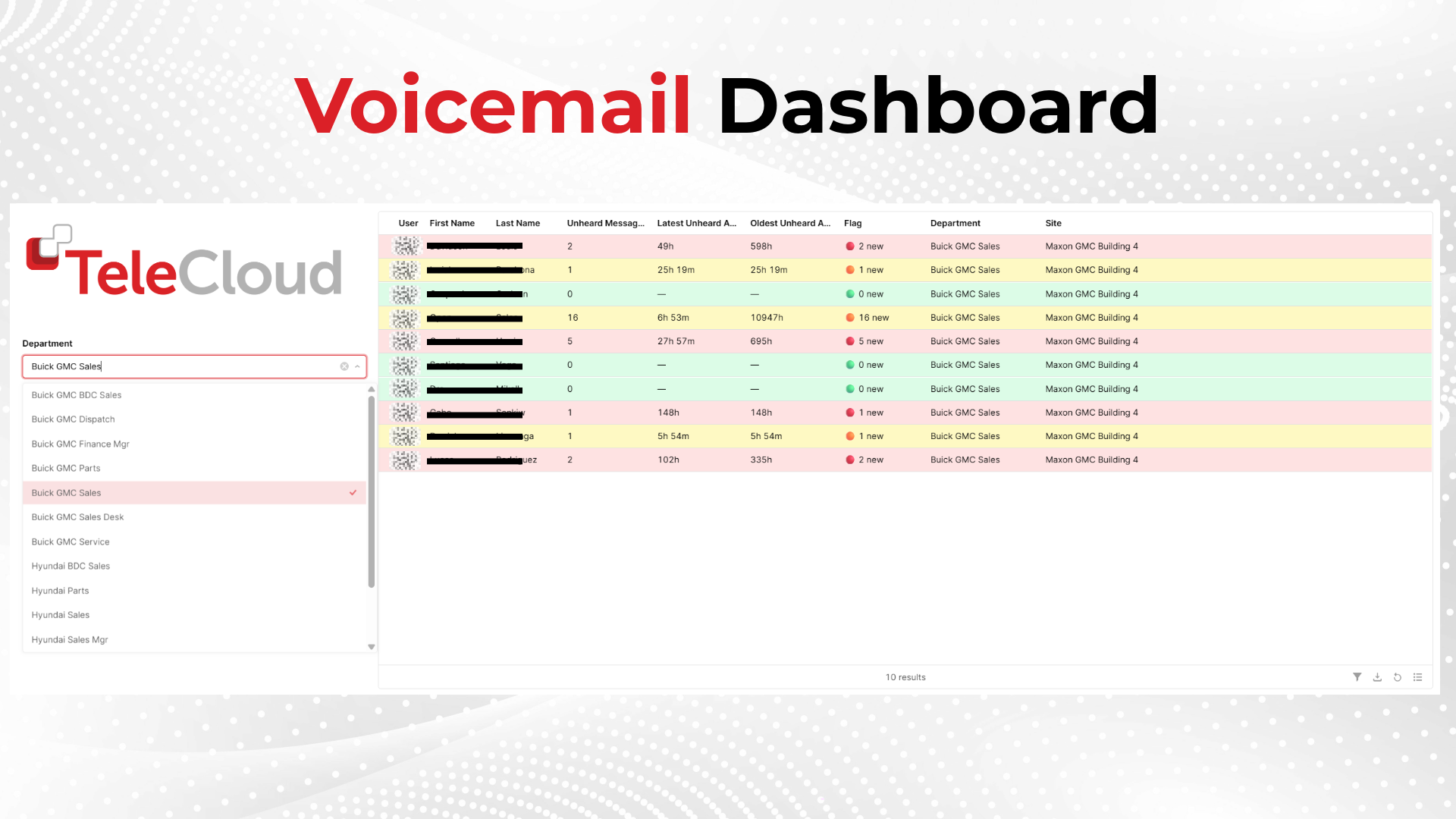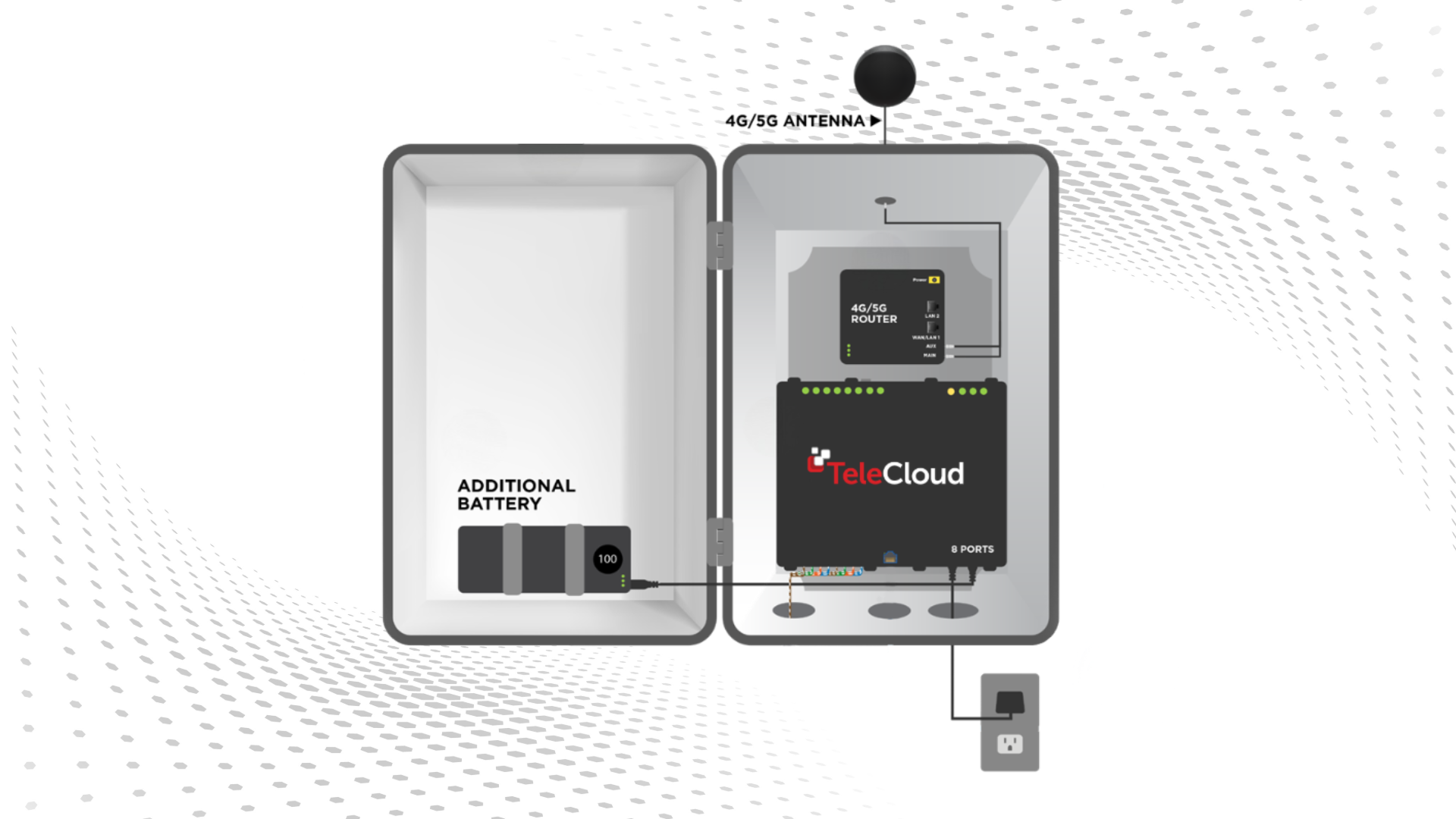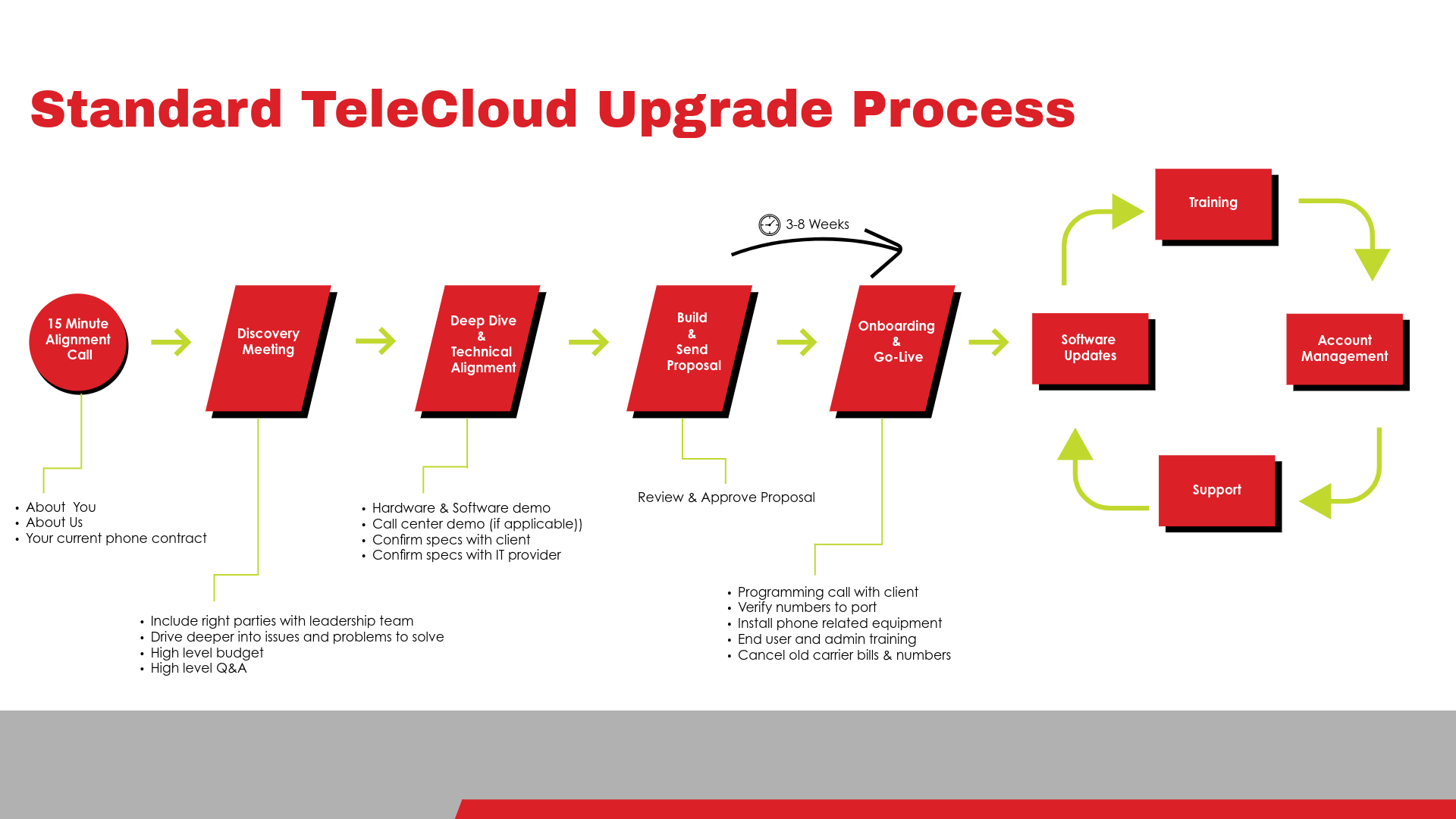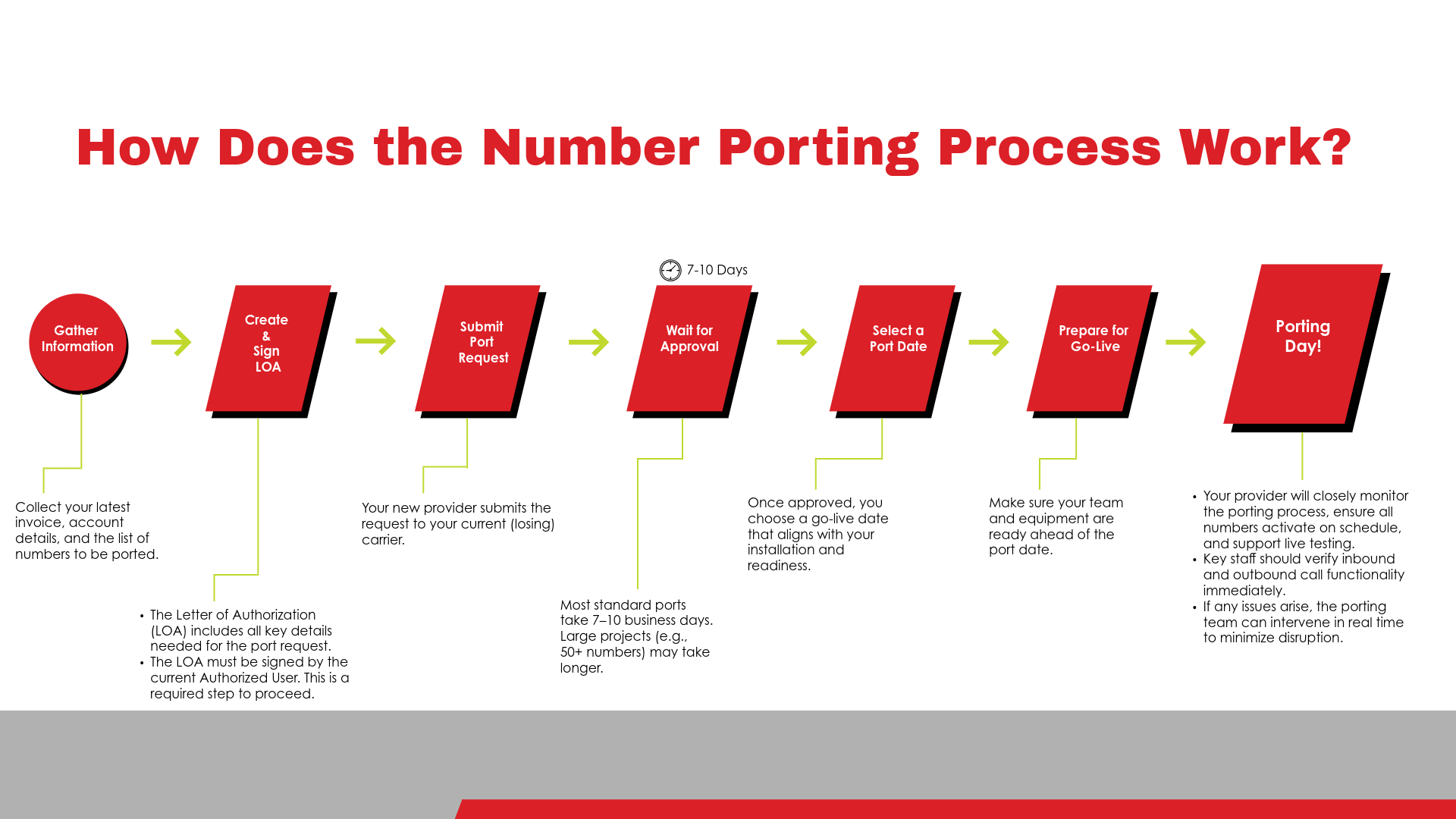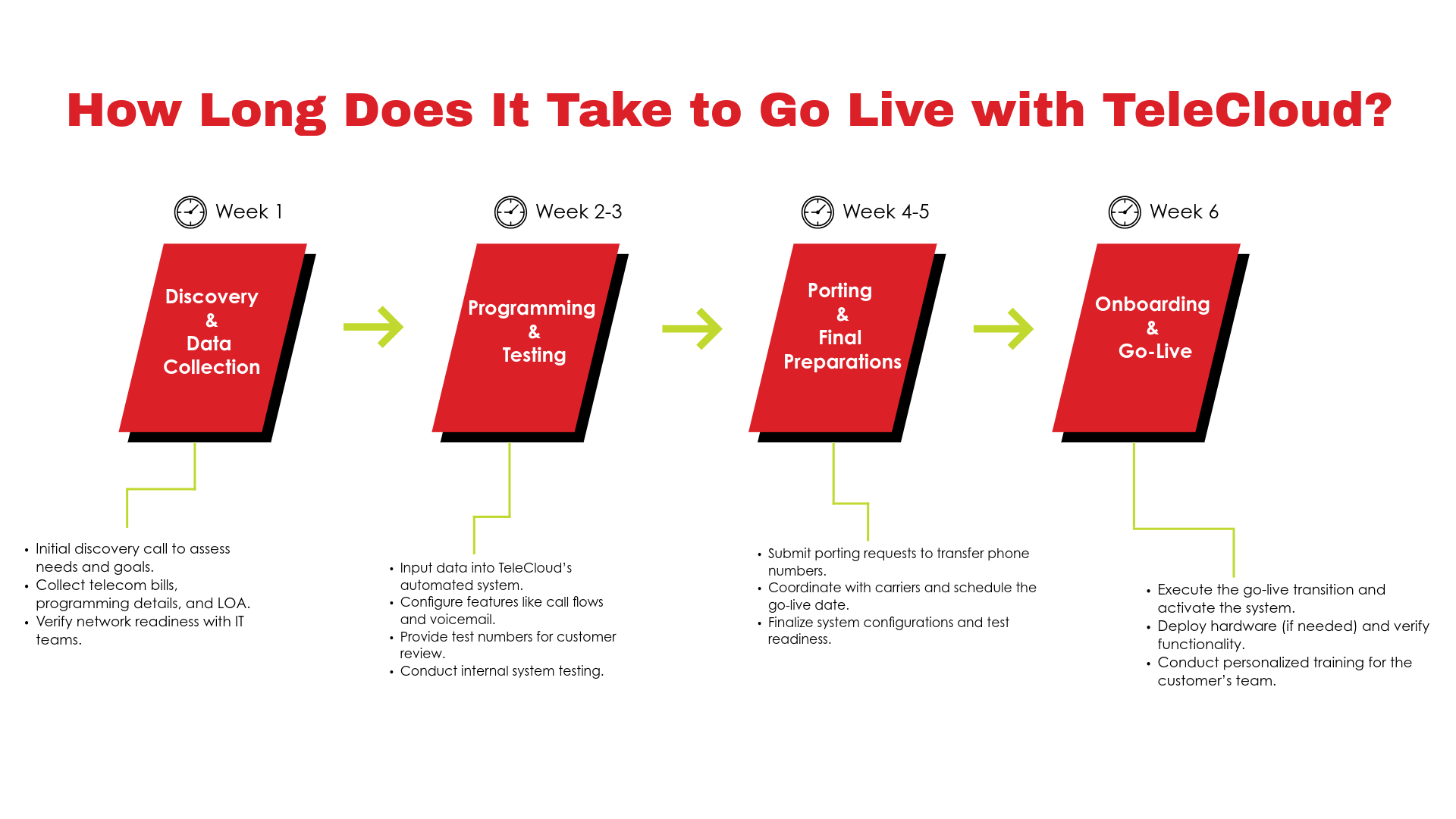When is the best time for my business to upgrade to a VoIP phone system?
April 5th, 2016
7 min read

These are the 7 most common reasons or best times a business might want to upgrade to a VoIP phone system.
For a lot of our customers, the thought of radically altering their method of communication, especially during the middle of a contract, busy time of the year, or in the process of any substantial changes to a business might seem like the worst possible idea.
Sometimes that's correct, sometimes that incorrect. The truth of the matter is, the only time that's perfect for your business to upgrade to a VoIP phone system is when it makes the most sense for you.
However, for anyone who's unsure of what that actually means, we try to help our clients identify times when it may be more beneficial to upgrade to a new VoIP system, and have found that these seven scenarios are generally a time when you should consider making the switch.
1 - Business is booming and we're hiring more people
Hopefully your business is flourishing, and you're eventually looking to expand in the future. Whether that means new sales staff, revamping your existing office, or you're looking to expand in the near future, VoIP phone systems let you do just that.
Let's say you have 20 employees on staff currently, and you think within the near future you're going to be adding a few more. Let's say 5 for the sake of this example.
If you're using traditional phone technology, you're going to need to add new user licenses, additional hardware, run new cabling, and get either IT or telephone service providers to conduct some on-site installation and setup. In essence, scalability with rational phone systems is an expensive and laborious process.
With VoIP phone systems, scalability is a non-issue, and adding new users is a breeze. VoIP may seem more complicated, but the reality is it's usually a cheaper, easier solution to traditional systems, and it's generally cheaper and easier to add new users as time goes on.
2 – A new office is in the works
Whether you're moving offices, or opening a remote location, when you move into a new office, building, or location, we've found this is an opportune time to expand and upgrade to a VoIP phone system.
We recommend you start exploring your options around 90 days prior to moving. When folks look into moving, they generally think about the following questions, and often find that traditional phone systems can't adequately meet their needs.
- How long will the move or setup take, and how long will business be "down"?
- Does your existing system still have any form of warranty or support that's a deciding factor in keeping your existing system?
- Are there any local companies that will be able to install or provide service with your system now & for a time into the future?
- Are there any additional costs to factor into moving your existing (and often antiquated) system?
- Will your customers still be able to call you during the move?
For most of the questions, people can't get a good answer, or find a cheap answer, since old systems are getting more expensive and difficult to maintain.
Many of our clients have found that a new VoIP system is the most popular solution in this case because it was time to upgrade anyway and the cost of all new IP phones and installation is usually equal to the cost of moving the old system.
3 – Your current phone system is failing
We recently got a call from a business when their dinosaur of an old phone system finally kicked the bucket after 15 years.
Since no one wants to sink good money into end of life technology, they asked us to provide a quote for our hosted VoIP phone system at their business.
At the end of the day we got the job done, and we did the proper follow up to keep them as a client for years to come.
- We got inbound calls back immediately by pointing customer calls to cell phones until our installation was completed. Meaning, the customer never knew that there was any problem at the business.
- We completed the installation, including all new Polycom IP phones, within only 2 days. We were in and out before the business knew it, meaning we hardly interrupted their business at all.
- Their monthly bill dropped by over $300 a month since we eliminated their traditional copper Verizon phone lines. Since VoIP phone lines aren't typed to actual lines like typical phone systems, there was no need for multiple lines from us. That's just not how VoIP works, so we ended up saving this business around $3,600 a year.
- Provided them with a more robust, easier to use, and more technologically advanced system, complete with on-site training, phone support, and webinars to keep all their staff updated.

4 - Remote and/or mobile office employees
The reality of today's business environment is that many businesses either have employees that wish to work from home or sales reps who are on the road most days.
Whether you have a car salesman out in the lot or someone traveling in another state, they should be connected to your business regardless of their location.
Have you ever had to call a client back from your cell phone only to realize that now have your number and might be calling you during dinner and on the weekends? No one wants that!
With a VoIP phone system at your business, your 'phone' can work wherever you have internet so you can plug them in at your home or any remote location. VoIP systems allow inbound calls to your desk phone to be automatically routed to smart phones when you’re not in the office, or softphones when you're sitting on a desktop computer.
Also, when making a call from your smartphone, VoIP apps allow you to essentially "hide" your phone number, meaning the caller ID your customer sees will be your business and not your personal line.
Do you ever work from home or wish you could? This is a common example of an additional site. With IP desk phones, you can now bring one back to your home office or vacation home and stay connected to the business that way.
Another perk we find our customers are absolutely crazy about is the option to intercom between offices. One client called it a "game-changer"!
5 – Your current phone system is holding you back
Ever use an old computer and realize it's holding you back from working efficiently?
Consider VoIP in the same manner. Your older phone system, regardless of what you think, may be preventing you from working at your full potential.
The fact of the matter is that most of us have usually 1 year old or new smart phones in our pockets, and 15+ year old dumb phones on our desk. If you’re trying to run a business & communicate efficiently in the 21st century.
Simply put, VoIP phone systems can help businesses enhance their communications, generally in the following 5 ways:
- Voicemail to Email – You don't need to dial into your voice mailbox and press button after button to find the right voicemail. You don't have to listen to a 5+ minute long message because a client left a mumbled phone number right at the end of their message. With VoIP technology, voicemails are emailed to you immediately, with a .wav audio file attachment. Meaning, you can scroll through the audio file just like you would an mp3 so you can easily get information quickly & easily.
- Follow Me / Find Me – Your VoIP service can easily figure out where you are, and route calls to the appropriate location. If you're at your desk, then your call goes there. If you're in the field, then your call goes to your cell. No matter where you are, VoIP technology can send a call to your phone.
- Zero Down Time – It doesn’t matter what's going on. VoIP features "disaster avoidance" so you're always connected. If your building loses power or the internet dies, calls can be sent to a virtual cloud auto-attendant, your cellphone, house phone, other offices, etc. to make sure customers can always get through. We discuss this topic in-depth in our article What happens to the VoIP phone system at my business if the internet goes down?
- Advanced Caller ID - You may take this for granted, but it's surprising how many companies still lack this basic feature. If your best client or angriest customer is calling, it is necessary to know beforehand for quality control.
- Real-time Call Reporting – You can keep track of every inbound or outbound call that's made. Meaning, you know what's going on with your phone system at all times. Many folks wonder why this is important, and it's fairly simple. Businesses mainly use this to track ROI on their advertising dollars and see if it makes sense to continue certain campaigns. They also find this feature invaluable for keeping statistics on a sales rep's individual activity or the group as a whole. A sales manager needs to know if their team is being effective.
6 – Your T1 or phone line contract is up for renewal and negotiation
Most businesses are in some kind of contract with their current phone service carrier. When that contract eventually comes to an end, or is ready for a re-up, you're in a great place. This is a perfect time to evaluate your needs, what you're getting, and most importantly, your bill, and make sure you're getting the most bang for your buck.
Typically a business will contact us 60-90 days prior to the expiration to go over options. Here's a tip: most carriers require written notice at this time alerting them to not auto-renew the contract. It’s never fun to over pay for 5 years of shoddy service only to find out you’re stuck for another 5 more.

7 – You're looking to have more money in your pocket
Whether you're trying to balance the budget, save some more money, or cut some expenses, you may want to look into VoIP phone systems.
For most of our clients, the switch to a VoIP phone system at their business saved them a considerable amount of money.
I mean really, who doesn’t want to reduce their monthly expenses? Sometimes we describe ourselves as Verizon’s worst nightmare because we are easy to do business with and save companies money. Are you blindly paying that phone bill and wish there was a way to escape this madness?
Since the inception of VoIP, companies have been taking advantage of increased revenue and a 25% average reduction in their monthly spending when they switch to a VoIP phone system.
The truth of the matter is that copper phone lines are not only more expensive, but the quality is steadily decreasing from underground wire degradation. Some folks worry about call quality, but the fact is VoIP phone systems in businesses have call quality that's equal to or better traditional phone systems. We discuss that topic in-depth here in our article What is the call quality like on a VoIP system vs a traditional phone system?
Simply put, by switching to a VoIP phone system, you'll cut down on "lines" needed for your phones. Think of it like this. You can have multiple computers connected to one internet connection, right? VoIP phones are the same way. You can have multiple phones on one connection, unlike traditional copper phone lines which only serve one phone per line.
You cut down the lines needed, you cut your cost. Simple as that.
The best time to upgrade to a VoIP phone system is whenever you're ready
Truth is, none of these scenarios might fit your situation. That's fine. Folks will upgrade when the time's right, regardless of external or internal factors.
However, these seven common scenarios, from our perspective, tend to be when folks looking into making an upgrade to a VoIP phone system.
Unsure if it's the right time for you to make the switch? Click here to contact us online, or send an e-mail to us directly at sales@tele-datasolutions.com, to learn more about when's the right time for you to upgrade to a VoIP phone system.
 By Vincent Finaldi
By Vincent Finaldi
Vice-President, Tele-Data Solutions
E-mail: vin@tele-datasolutions.com | Direct Line: (908) 378-1218
What brings me satisfaction is meeting with New Jersey–based businesses and genuinely helping them solve communication and business problems. As someone who has lived in New Jersey my entire life, I love working and playing here. I live in Morristown with my wife, Lisa, and root for the New York Giants.
damon@telecloud.net





